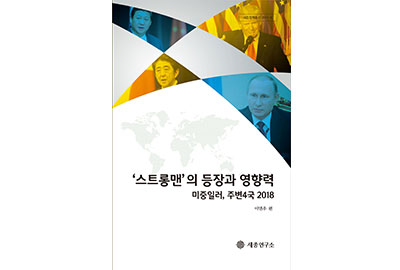The cases of ‘strongmen’ emerging in the U.S., China, Japan, and Russia are visible in China where President Xi is able to remain in power for life and in Russia where President Putin cruised to secure the presidency again in March 2018. While it may appear feasible in China and Russia due to the political systems, Japan, a liberal democratic country, also has shown characteristics of ‘strongmanship’ – the long-serving Prime Minister Abe paved the way for Japan to exercise the ‘right of collective self-defense,’ one thing that the post-war Japanese conservatives longed for.
U.S. President Donald Trump also has manifested tendencies of ‘strongman’ even though the strength of the leadership is questionable. Obviously, the term ‘strongmanship’ should be defined closely and the following chapter will discuss how to perceive ‘strongmanship.’ In the case of Trump, regardless of the successes of his policies, the pursuit of restrictions against immigrants and trade war reflect the ‘strongmanship’ aspect.

